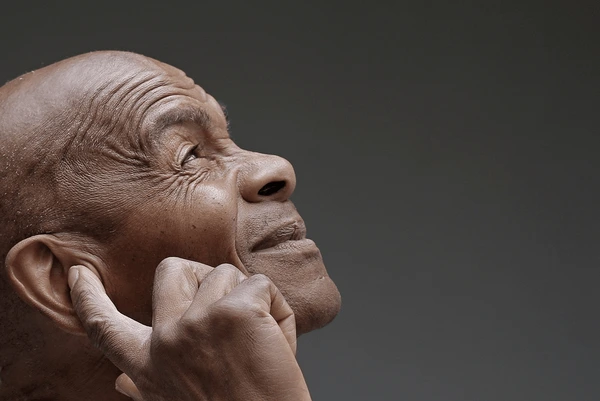Author's details
- Dr. Khashau Eleburuike
- MBBS (Ilorin) MSc. Global Health Karolinska Institute.
- Resident doctor in family medicine in Northern Sweden.
Reviewer's details
- Dr Abdulgafar Lekan Olawumi
- MHE, MPH, FWACP, FMCFM
- Department of Family Medicine and Geriatric Centre of Aminu Kano Teaching Hospital Kano, Nigeria.

- Date Published: 2026-01-03
- Date Updated: 2025-04-19
Hearing Loss in Older Adults in Sub-Saharan Africa
Key Messages
- Hearing loss is common in older adults and often goes unnoticed in Sub-Saharan Africa.
- Age-related hearing loss (presbycusis) is a major cause and can seriously affect quality of life.
- Untreated hearing loss leads to social isolation, depression, and increased risk of falls.
- Early identification and simple treatments like earwax removal and hearing aids can help.
- Limited access to hearing care and stigma are major challenges for older adults in the region.
Introduction
What is Hearing Loss?
Hearing loss is the partial or complete inability to hear sounds in one or both ears. It is common in older adults and often develops gradually over time. Although it is not life-threatening, hearing loss can seriously affect quality of life, communication, and social participation.
Discussion
Hearing Loss and Ageing
As people age, the inner structures of the ear can naturally deteriorate—a condition known as presbycusis (age-related hearing loss). This is one of the most common chronic conditions in the elderly, yet it is often overlooked in Sub-Saharan Africa.
Signs of Hearing Loss in Older Adults
Watch out for:
- Frequently asking others to repeat themselves
- Trouble distinguishing speech such as saying “I can hear, but I cannot understand”
- Difficulty following conversations, especially in noisy environments
- Turning up the volume on TV or radio
- Trouble hearing the phone or doorbell
- Withdrawing from conversations or social activities
- Responding inappropriately in conversations
Causes of Hearing Loss in the Elderly
- Natural ageing (presbycusis)
- Repeated exposure to loud noise
- Ear infections or impacted wax
- Chronic diseases like diabetes or hypertension
- Ototoxic medications
- Untreated childhood infections or trauma
- Lack of early hearing care access
Impact on Quality of Life
Untreated hearing loss can lead to:
- Social isolation
- Depression or anxiety
- Cognitive decline or confusion
- Increased risk of falls
- Miscommunication with family or healthcare providers
What Can Be Done?
- Early Identification
- Ask about hearing concerns during health visits
- Basic hearing tests can be done at clinics
- Simple Treatments
- Earwax removal
- Hearing aids (when available)
- Use of amplified phones or visual alerts
- Speaking clearly and face-to-face
- Supportive Communication
- Reduce background noise
- Use gestures or written messages
- Be patient and allow extra time for conversation.
Special Considerations in Sub-Saharan Africa
- Many older adults do not report hearing loss
- Limited access to audiology services
- Cultural beliefs may cause stigma
- Low affordability of hearing aids
- Community awareness is vital
How Families Can Help
- Support your loved one without shame or blame
- Encourage check-ups and hearing tests
- Include them in conversations and decisions
- Advocate for access to hearing health services
- Reframe instead of repeating the same words if not clear at the first time.
- Be patient and speak clearly
Conclusion
Hearing loss is common with age, but it doesn’t have to mean silence. Early support makes a big difference.
References
- World Health Organization. (2021). World Report on Hearing. https://www.who.int
- Olusanya, B. O., Neumann, K. J., & Saunders, J. E. (2014). The global burden of disabling hearing impairment: a call to action. Bulletin of the WHO, 92(5), 367–373.
- McPherson, B., & Holborow, C. (2019). Hearing loss in older adults in Sub-Saharan Africa. International Journal of Audiology, 58(6), 353–359.
- Bright, T., et al. (2019). Access to health care for people with hearing loss in Africa: a scoping review. Disability & Rehabilitation, 41(1), 1–8.
